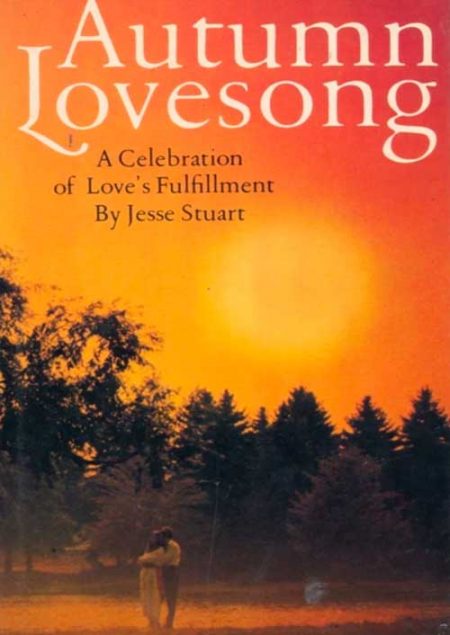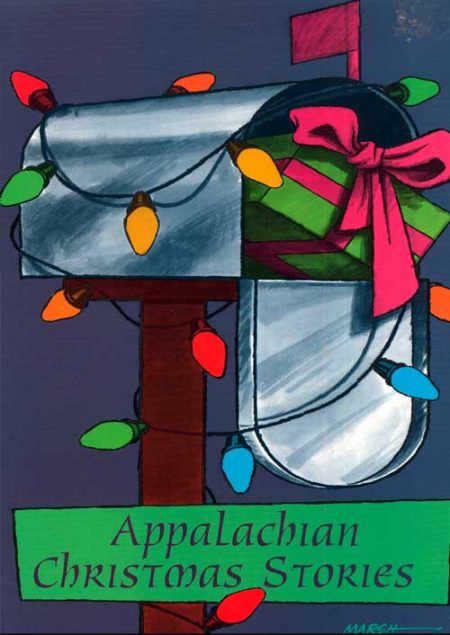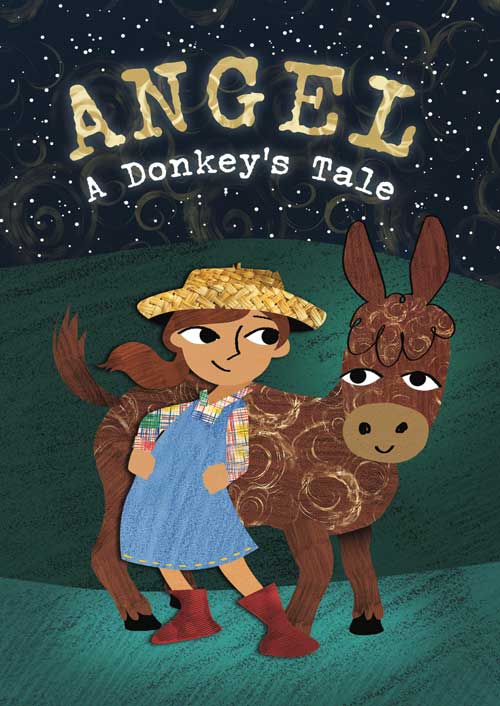-
 Appalachian Values is a series of essays written to counter the persistent negative stereotypes about Appalachian people. The stories used to illustrate various values are accompanied by powerful photographs of Appalachian people and settings. Covering values from our Early Appalachian forebears to today, the books speaks of freedom, religion, independence, self-reliance, pride, neighborliness, hospitality, familism, personalism, humility, love of place, patriotism, sense of beauty, and sense of humor. It gives a positive view of Appalachian culture that will serve students and a general audience, too. Essays by Loyal Jones Photography by Warren Brunner
Appalachian Values is a series of essays written to counter the persistent negative stereotypes about Appalachian people. The stories used to illustrate various values are accompanied by powerful photographs of Appalachian people and settings. Covering values from our Early Appalachian forebears to today, the books speaks of freedom, religion, independence, self-reliance, pride, neighborliness, hospitality, familism, personalism, humility, love of place, patriotism, sense of beauty, and sense of humor. It gives a positive view of Appalachian culture that will serve students and a general audience, too. Essays by Loyal Jones Photography by Warren Brunner -
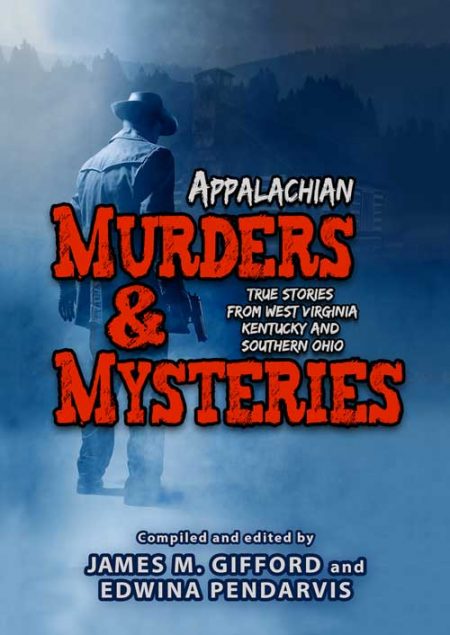 Appalachian Murders & Mysteries: True Stories from West Virginia, Kentucky, and Southern Ohio, 23 stories by 17 authors compiled and edited by James M. Gifford and Edwina D. Pendarvis. The tragic events described in this book could have happened anywhere, but they happened here in central Appalachia. They are a part of our history. Together, these stories create a literary “mourning quilt,” commemorating the innocent and the guilty and piecing together significant remnants of 200 years of life in eastern Kentucky, southern Ohio, and West Virginia. HARDBACK Compiled and edited by James M. Gifford and Edwina D. Pendarvis
Appalachian Murders & Mysteries: True Stories from West Virginia, Kentucky, and Southern Ohio, 23 stories by 17 authors compiled and edited by James M. Gifford and Edwina D. Pendarvis. The tragic events described in this book could have happened anywhere, but they happened here in central Appalachia. They are a part of our history. Together, these stories create a literary “mourning quilt,” commemorating the innocent and the guilty and piecing together significant remnants of 200 years of life in eastern Kentucky, southern Ohio, and West Virginia. HARDBACK Compiled and edited by James M. Gifford and Edwina D. Pendarvis -
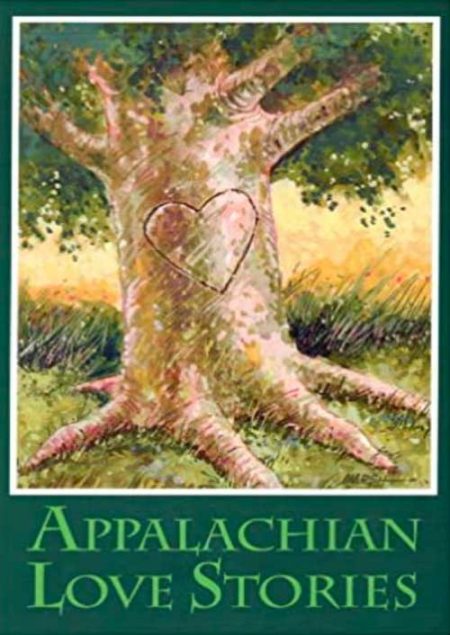 Authors represented in Appalachian Love Stories include:
Authors represented in Appalachian Love Stories include:- Jesse Stuart
- Ancella R. Bickley
- James M. Gifford
- Jimmy Lowe
- James B. Goode
- Edwina Pendarvis
- Laura Treacy Bentley
- Bruce Radford Richey
- Ina Everman
- Danny Fulks
- Loyal Jones
- Billy C. Clark
- Linda Scott DeRosier
- Christina St. Clair
- Alexandra Combs Hudson
- Kate Larken
- Barbara Smith
- Carol Van Meter
-
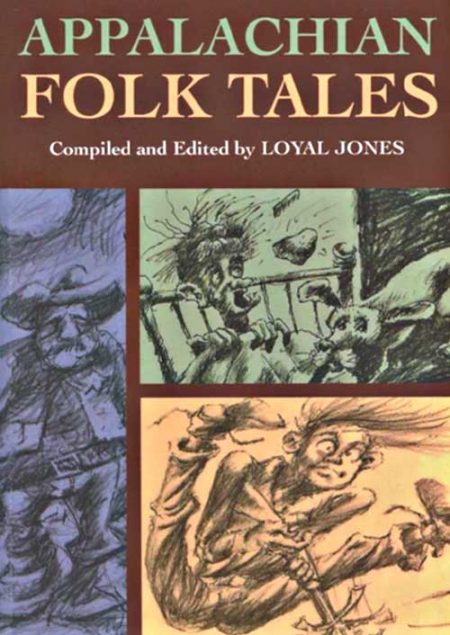 This is a collection of folk tales, or stories based on traditional tales which originated in the Old World before America became a nation. They came to this country in the memories of the settlers and were passed on to younger generations through the oral tradition. However, as the immigrants to America began to change and develop into Americans, so did the characters in the folk tales. SOFTBACK Compiled & Edited by Loyal Jones
This is a collection of folk tales, or stories based on traditional tales which originated in the Old World before America became a nation. They came to this country in the memories of the settlers and were passed on to younger generations through the oral tradition. However, as the immigrants to America began to change and develop into Americans, so did the characters in the folk tales. SOFTBACK Compiled & Edited by Loyal Jones -
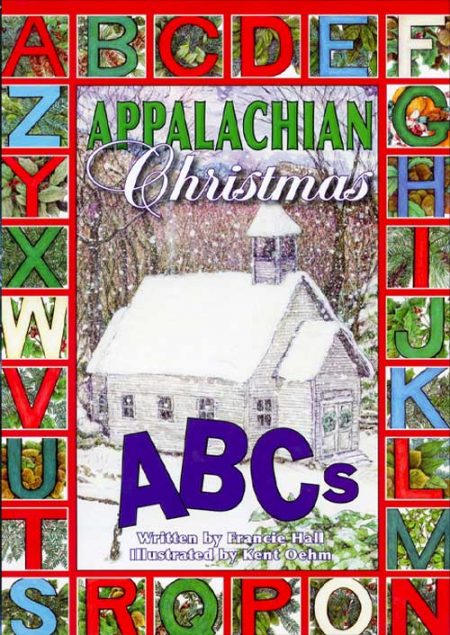 Laced throughout the litany of letters on this celebratory alphabet book is the meaning of Christmas with an Appalachian twist. Exploring the whimsy and worship of Yuletide in the mountains, each letter captures a glimpse of the traditions, food, and frolicking shared by family and friends. Incorporating a legend about the animals around the manger, a program with angels announcing God's glory, and choirs softly singing carols, this A-to-Z book for all ages will become a new Christmas tradition for families who gather around the tree each December. By Francie Hall Illustrated by Kent Oehm
Laced throughout the litany of letters on this celebratory alphabet book is the meaning of Christmas with an Appalachian twist. Exploring the whimsy and worship of Yuletide in the mountains, each letter captures a glimpse of the traditions, food, and frolicking shared by family and friends. Incorporating a legend about the animals around the manger, a program with angels announcing God's glory, and choirs softly singing carols, this A-to-Z book for all ages will become a new Christmas tradition for families who gather around the tree each December. By Francie Hall Illustrated by Kent Oehm -
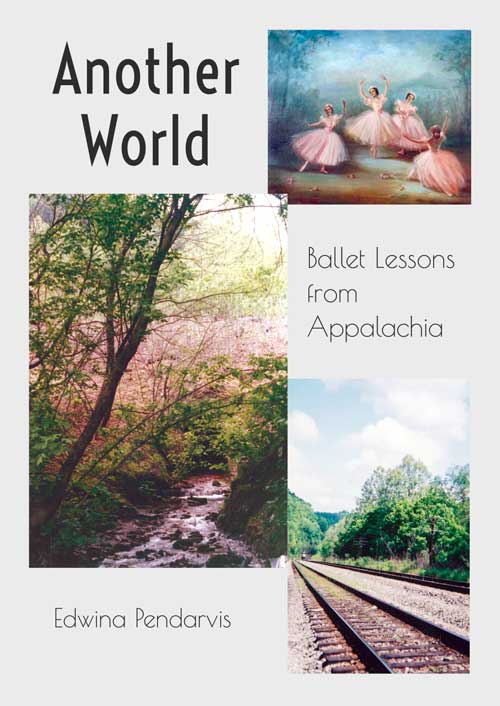 This boundary-crossing book views ballet through the eyes of 24 Appalachian women who began their ballet lessons in childhood. Combining research in dance with analysis of interviews with the women, the work highlights what ballet meant to girls who sought a more magical world than the one they occupied. Keen in insight and colorful in detail, the narrative includes experiences of renowned dancers, past and present—Maria Tallchief, Misty Copeland, and Wendy Whelan among others. Surprising notables, world heavyweight champion, Muhammad Ali, born in Louisville, Kentucky, and Olympic gold medalist in gymnastics, Mary Lou Retton, from Fairmont, West Virginia, make cameo appearances in the narrative too. An engaging story of why ballet was meaningful to girls from the hills and hollows of central Appalachia, Another World: Ballet Lessons from Appalachia recognizes vital intersections—children and their families, students and their teachers, local and global communities—in the development of talent. SOFTBACK VERSION By Edwina Pendarvis
This boundary-crossing book views ballet through the eyes of 24 Appalachian women who began their ballet lessons in childhood. Combining research in dance with analysis of interviews with the women, the work highlights what ballet meant to girls who sought a more magical world than the one they occupied. Keen in insight and colorful in detail, the narrative includes experiences of renowned dancers, past and present—Maria Tallchief, Misty Copeland, and Wendy Whelan among others. Surprising notables, world heavyweight champion, Muhammad Ali, born in Louisville, Kentucky, and Olympic gold medalist in gymnastics, Mary Lou Retton, from Fairmont, West Virginia, make cameo appearances in the narrative too. An engaging story of why ballet was meaningful to girls from the hills and hollows of central Appalachia, Another World: Ballet Lessons from Appalachia recognizes vital intersections—children and their families, students and their teachers, local and global communities—in the development of talent. SOFTBACK VERSION By Edwina Pendarvis -
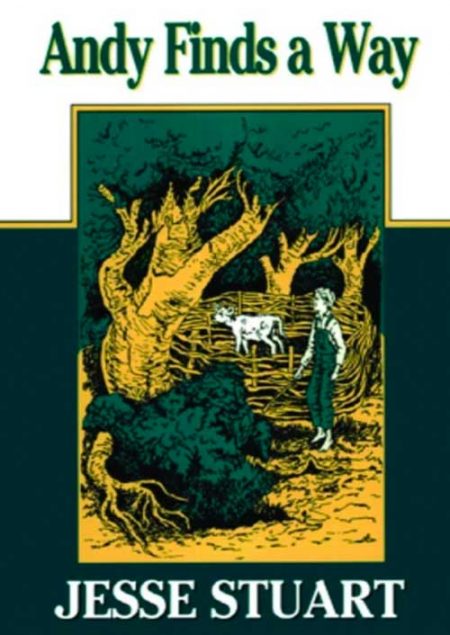 Jesse Stuart Junior Book Even though he lived on a farm and had had a number of pet animals, Andy Scott had never been able to keep a pet very long. Then Gypsy, the family cow, had a calf. Andy called him Soddy, because he was the color of the plowed clay ground. He hoped to keep the calf as a pet. Andy's father told him Soddy would have to be sold for veal, but Andy was determined to save his new friend and playmate. Filled with love for the calf, yet knowing his parents needed the money, Andy thought of a plan to suit everyone. SOFTBACK By Jesse Stuart
Jesse Stuart Junior Book Even though he lived on a farm and had had a number of pet animals, Andy Scott had never been able to keep a pet very long. Then Gypsy, the family cow, had a calf. Andy called him Soddy, because he was the color of the plowed clay ground. He hoped to keep the calf as a pet. Andy's father told him Soddy would have to be sold for veal, but Andy was determined to save his new friend and playmate. Filled with love for the calf, yet knowing his parents needed the money, Andy thought of a plan to suit everyone. SOFTBACK By Jesse Stuart -
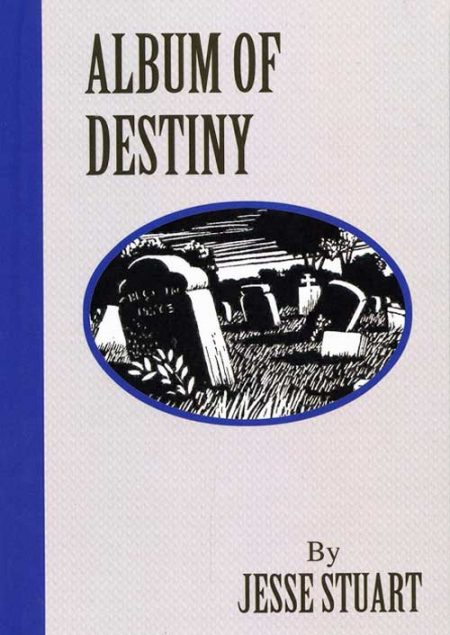 Jesse Stuart labored eleven years over Album of Destiny. The idea for this work came to him in 1932 as he idly turned through the pages of an old family album which contained pictures of his youthful mother and father, posing before apple trees in bloom. Later pictures showed them worn and aged, and Stuart thought how he who was now young and in the vigor of his life must complete the same cycle that his parents had gone through. He began to write poetry for this volume in the 1930s. Before he was through he had written two thousand poems. HARDBACK, LIMITED EDITION By Jesse Stuart
Jesse Stuart labored eleven years over Album of Destiny. The idea for this work came to him in 1932 as he idly turned through the pages of an old family album which contained pictures of his youthful mother and father, posing before apple trees in bloom. Later pictures showed them worn and aged, and Stuart thought how he who was now young and in the vigor of his life must complete the same cycle that his parents had gone through. He began to write poetry for this volume in the 1930s. Before he was through he had written two thousand poems. HARDBACK, LIMITED EDITION By Jesse Stuart


